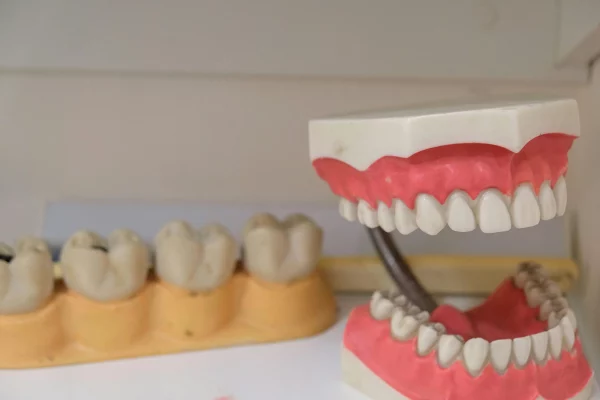Recent research is drawing a rather strong connection between gum disease and heart health. It’s not just about keeping your teeth looking good anymore, apparently, poor oral hygiene might actually have some not-so-great effects on your heart. Studies are showing that individuals with periodontal disease could be at greater risk for heart-related conditions.
So, taking care of your mouth isn’t just a cosmetic thing; it’s a legitimate part of overall health. The body’s systems are way more interconnected than we sometimes think. In short: practice good oral hygiene, and you’re essentially investing in your heart’s future too.
What Is Gum Disease?

Gum disease, more formally known as periodontal disease, is unfortunately quite prevalent and poses a significant risk to oral health. Typically, it originates from inadequate oral hygiene practices, which allow plaque, a bacterial biofilm, to accumulate along the gumline. This accumulation provokes an inflammatory response: gums may appear erythematous, edematous, and may bleed upon probing.
If intervention is delayed, the disease does not simply remain a minor annoyance. Instead, it advances, contributing to gingival recession, destruction of supporting bone, and, in severe cases, eventual tooth loss. The implications for both oral and systemic health are substantial, underscoring the necessity for early identification and consistent preventive care.
Types of Gum Disease
Gum disease develops in distinct stages, each marked by increasing severity and potential harm to oral health.
The initial stage, gingivitis, is characterized by mild inflammation of the gums. Common signs include redness, swelling, and bleeding especially noticeable when brushing or flossing. At this point, the underlying bone and connective tissues remain unharmed. Fortunately, with proper oral hygiene and routine professional cleanings, gingivitis is typically reversible.
If left unaddressed, gingivitis can progress to periodontitis, a considerably more serious condition. In this phase, the gums and underlying bone begin to recede from the teeth, resulting in the formation of pockets that are susceptible to infection. The body’s immune response, along with bacterial toxins, can gradually destroy the bone and tissue anchoring the teeth. Over time, this deterioration may cause teeth to become loose or even fall out. Managing periodontitis often demands more intensive interventions, such as scaling, root planing, and, in advanced cases, surgical procedures.
In summary, recognizing and addressing gum disease early is crucial for maintaining oral health and preventing long-term complications.
The Link Between Gum Disease and Heart Health
Recent findings suggest that gum disease holds a more profound connection to heart health than previously assumed. Evidence indicates that inflammation resulting from periodontal disease can elevate the risk of serious heart conditions, such as heart attacks and strokes. Recognizing this relationship underscores the broader significance of proper oral hygiene, not merely for dental well-being, but as a key component of maintaining overall systemic health.
Inflammatory Pathways
Chronic inflammation is a critical factor in the development of both periodontal and cardiovascular disease. When the gums become infected, pathogenic bacteria can enter the bloodstream, prompting a systemic inflammatory response. This process is not limited to the oral cavity; rather, it can influence the entire cardiovascular system. Over time, persistent inflammation may contribute to atherosclerosis, a condition characterized by the hardening and narrowing of arteries, which elevates the risk of myocardial infarction and stroke. Consequently, management of periodontal disease extends beyond oral health and plays a significant role in safeguarding cardiovascular well-being.
Research Findings
Recent research has increasingly illuminated the connection between periodontal disease and cardiovascular health. For example, a study published in Circulation reported that individuals with gum disease face a 9% higher risk of developing coronary artery disease. Furthermore, an umbrella review in BMC Oral Health underscored the broader association between periodontal disease and various cardiovascular conditions, such as coronary heart disease and stroke. These findings underscore the significance of maintaining optimal oral hygiene, not solely for oral health, but as a crucial measure for protecting cardiovascular well-being.
Mechanisms Connecting Gum Disease to Heart Health

When the gums become inflamed as a result of periodontal disease, pathogenic bacteria such as Porphyromonas gingivalis can enter the bloodstream. Once circulating, these bacteria have the capacity to adhere to the walls of blood vessels, contributing to the development of arterial plaques. This mechanism accelerates the progression of atherosclerosis and, consequently, raises the risk for cardiovascular events such as heart attacks and strokes.
Furthermore, gum disease is not merely a localized oral health issue; it can provoke systemic inflammation. The body’s immune response to oral pathogens often results in elevated levels of C-reactive protein (CRP), a biomarker commonly used to assess inflammation. Higher concentrations of CRP have been closely associated with an increased risk of heart attacks and strokes.
Preventive Measures
Maintaining oral hygiene isn’t solely about avoiding cavities; research increasingly links dental health to cardiovascular well-being as well. Regular brushing, flossing, and routine professional check-ups don’t just support healthy gums, they may also help lower the risk of heart disease. By consistently practicing effective dental care, individuals can actively contribute to both their oral and cardiac health. Quite simply, daily oral hygiene is an investment in the overall health of the body.
Oral Hygiene Practices
Maintaining oral hygiene is, frankly, non-negotiable if you want to avoid dental complications. Brushing with a fluoride toothpaste ideally twice daily removes plaque and supports gum health. Flossing isn’t just an optional extra; it’s essential for clearing debris and plaque from areas a toothbrush can’t reach, particularly between teeth.
Regular dental visits shouldn’t be underestimated, either. These check-ups allow for professional cleaning and enable early identification of gum disease or other oral health issues. Interestingly, there’s growing evidence that good oral hygiene may even benefit cardiovascular health. So, in summary, diligent daily care combined with routine professional oversight is the cornerstone of both oral and potentially broader systemic health.
Lifestyle Modifications
A balanced diet rich in fruits, vegetables, and whole grains supports both your immune system and gum health. Regular physical activity helps improve circulation and reduces inflammation, which benefits your heart and gums alike. Avoiding smoking is critical, tobacco use significantly increases your risk for gum disease and is a major contributor to cardiovascular problems. By making smart lifestyle choices, you protect your smile and your heart at the same time.
Frequently Asked Questions
1. Can treating gum disease reduce the risk of heart disease?
Yes, treating gum disease can help lower systemic inflammation in the body. Since inflammation plays a key role in both gum disease and heart disease, reducing it may help protect your cardiovascular health. Managing periodontal issues can prevent bacteria from entering the bloodstream and causing further complications. While treatment doesn’t guarantee the prevention of heart disease, it is an important step in overall health maintenance. Regular dental care and gum disease management contribute to lowering your risk of cardiovascular events.
2. Is there a direct cause-and-effect relationship between gum disease and heart disease?
Although research shows a strong link between gum disease and heart disease, a direct cause-and-effect relationship has not yet been definitively proven. Many studies suggest that inflammation and bacteria from gum disease can contribute to heart problems, but more research is needed to fully understand the connection. Various factors, including genetics and lifestyle, also influence heart disease risk. Scientists continue to investigate how these conditions interact on a biological level. Until then, maintaining good oral health remains an important preventive measure.
3. How often should I visit the dentist?
It is generally recommended to visit your dentist at least twice a year for routine check-ups and professional cleanings. These visits help catch potential issues early before they become serious problems. Regular dental appointments also allow for thorough cleanings that remove plaque and tartar buildup, which are difficult to eliminate with regular brushing alone. Your dentist can provide personalized advice based on your oral health needs. Consistent care supports both your dental and overall health.
4. Can gum disease be prevented?
Yes, gum disease is largely preventable with proper oral hygiene and regular dental visits. Brushing twice daily and flossing once a day remove plaque that causes gum inflammation. Routine professional cleanings and dental exams help keep your gums healthy and catch early signs of disease. Avoiding tobacco and eating a balanced diet also support gum health. By maintaining these habits, many people can prevent gum disease and protect their smile.
5. Are certain individuals more at risk?
Yes, some individuals face a higher risk of developing gum disease due to various factors. Poor oral hygiene is a primary cause, as it allows plaque buildup and gum inflammation. Smokers are especially vulnerable because tobacco weakens the immune system and impairs gum healing. People with underlying health conditions such as diabetes also have an increased risk due to compromised immune responses. Being aware of these risks can help you take proactive steps to protect your oral health.
Concerned about your heart as well as your smile? Recent research shows gum disease isn’t just about your teeth—it can seriously impact your heart, blood pressure, and stroke risk. Protect both now by maintaining excellent oral hygiene and getting comprehensive care. Book a gum health and heart wellness checkup at GPD Dental today to address hidden inflammation, get a full assessment, and help safeguard your overall health.


